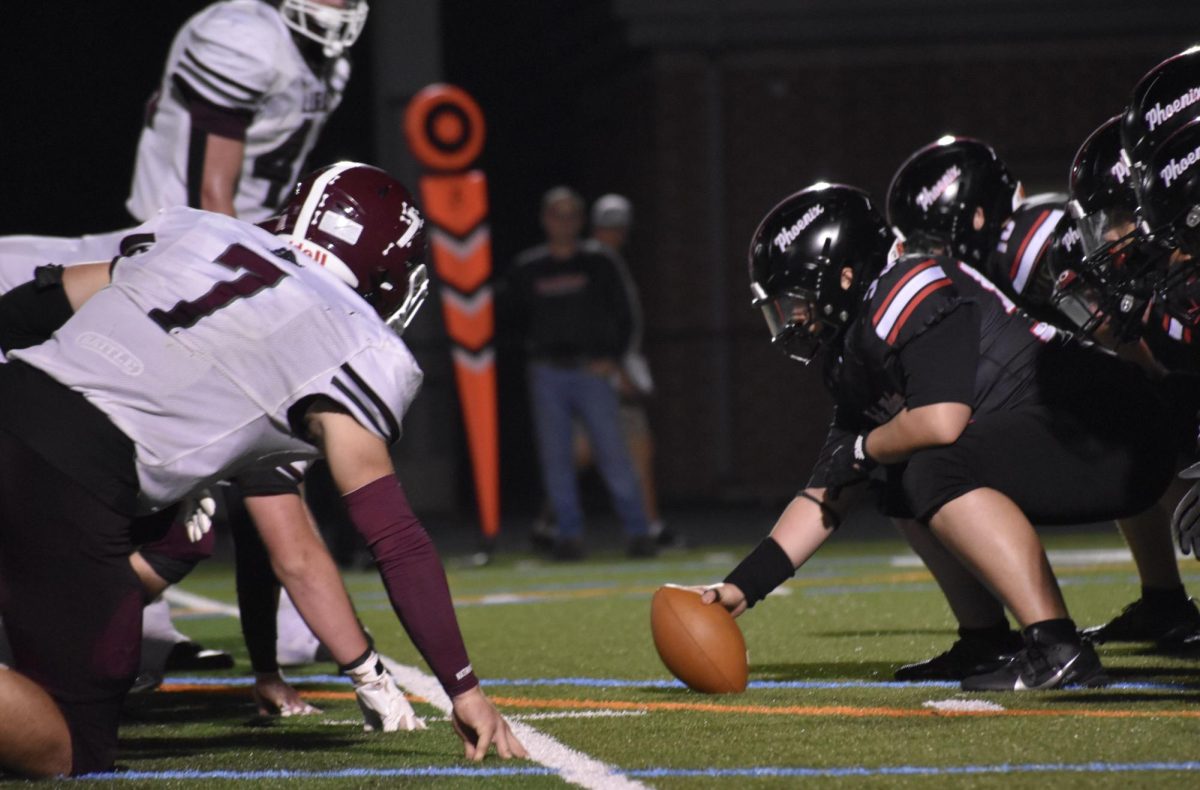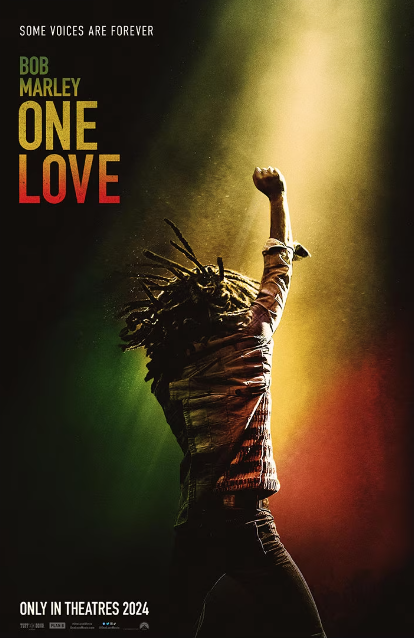“Bob Marley: One Love” follows the life of Bob Marley, an extremely talented musician who overcame many obstacles to become the most famous reggae musician in the world. Starring Kingsley Ben-Adir (Bob Marley), the entire cast beautifully captured the essence of the Marley and the Wailers’ era with the hit Jamaican reggae band.
The movie follows the journey of Marley and the Wailers as they travel across Europe to perform at various concerts. The main message that they brought to the crowds through their music was that music could bridge the gap between politics to end violence. Through an emotional, expressive, and entertaining film, the directors were able to depict the hardships that Marley and his crew had to endure to fight for their beliefs and love for their country.
By the 1960s, there was a shift in the way music was viewed; it went from a form of art meant to describe interaction between people to art that represents the interaction between the oppressor and the oppressed. This was pioneered by people like Marley in the form of reggae, a genre of music originating in Jamaica and drawn from Afro-Jamaican culture.
Marley’s inspiration came from the Rastafari Movement, an African-Jamaican movement meant to reject British colonialism and Western imperialism. This intersection between revolution and music made reggae widely popular throughout the ‘60s and ‘70s, with Marley becoming one of the most influential artists in the Western Hemisphere.
Reggae music’s impact was no small mark on American culture. The genre inspired a new generation of hip-hop artists to emerge in the 20th and 21st centuries. This massive impact transformed reggae music into one of the most impactful, recognizable, and influential sounds in American media history.
The historical significance behind “Bob Marley: One Love” goes as far back as to the complicated political conflicts in Jamaica in the 1970s. The country was torn between political violence between major political parties and gangs. After a few years, Jamaica’s political leaders were influenced by the “Rastafarian” message of unity, and this eventually sparked the beginning of Bob Marley’s era to transform the nation.
The film does a great job encapsulating the raw emotion from the historical time period of the movie. Bob Marley and the Wailers had one goal behind their music: to unify Jamaica peacefully. Marley believed that music was the answer behind the country’s violent struggles, and this message was displayed quite well throughout the film.
The casting was also on-point, as the actors blended quite seamlessly with one another. Since the movie wasn’t directed like a typical film due to its historical context, the actors put on a stellar performance playing into their roles and portraying the importance of their characters’ lives. The star of the film, Ben-Adir, was a symbol of pure talent and passion throughout the film. During many scenes, Ben-Adir could be seen shaking on stage while performing at various concerts, realistically portraying the experience and impact of Marley’s concerts.
Overall, the film blended music and politics to push forward a simple message: music can break boundaries. The casting, direction, and ambience of the film allowed it to emotionally engage with the audience. Although it was quite difficult to understand what the characters were saying at times due to the heavy Jamaican accent in the dialogue, the authenticity of the film is what set it apart from other documentary/autobiographical films.
“Bob Marley: One Love” is available to watch in theaters.


























![The Phoenix varsity volleyball team lines up for the national anthem. “We were more communicative [with each other] during this game, and I feel like we kept our energy up, especially after the first set,” senior Jessica Valdov said.](https://theblazerrhs.com/wp-content/uploads/2024/10/DSC_0202-1200x800.jpg)










![Junior Alex Alkhal pitches the ball. “[I] just let it go and keep practicing so we can focus on our goal for the next game to get better as a team,” Alkhal said.](https://theblazerrhs.com/wp-content/uploads/2025/05/DSC_0013-1-1200x929.jpg)






















